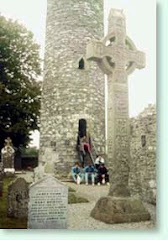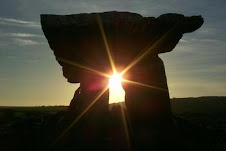 Se per l'estate non ti piace il mare, ti annoia il vilalggio vacanza, vuoi partire senza i vecchi amici per trovarne di nuovi la vacanza-studio è una buona opportunità per coniugare l'utile e costruttivo aspetto di apprendimento non solo di una lingua ma anche di una cultura e il piacere della vacanza.
Se per l'estate non ti piace il mare, ti annoia il vilalggio vacanza, vuoi partire senza i vecchi amici per trovarne di nuovi la vacanza-studio è una buona opportunità per coniugare l'utile e costruttivo aspetto di apprendimento non solo di una lingua ma anche di una cultura e il piacere della vacanza.Senza limiti di età, dai 18 ai 90 anni, una ottima occasione per visitare nuovi posti in modo utile ed economico.
Con l'ass.ne Italo Irlandese non dovrai preoccuparti di nessun aspetto organizzativo. Noi ci prendiamo cura di te dall'iscirzione al tuo arrivo in famiglia e duante tutto il soggiorno. Gli associati amano al rientro venirci a trovare o scirverci per darci il loro entusiastico resoconto... per poi programmare una nuova partenza l'anno successivo.
Vacanza divertente, internazionale, utile ed economica!
Corso Inglese di 15, 20 o 26 lezioni
Sistemazione in famiglia, pensione completa, camera singola
Attività sociali , ricche di gite, escursioni, musica, balli, concerti, musei ecc...
Prima decidi più risparmi sul biglietto aereo.
Info e prenotazioni: 06.5412597 oppure aiciroma@tin.it







